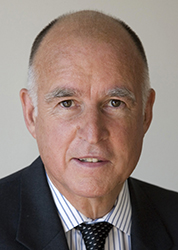 Last week, Governor Jerry Brown vetoed a California bill (SB-598) that would have authorized a pharmacist to select a biosimilar when filling a prescription order for a prescribed biological product, provided that the prescriber did not personally indicate "Do not substitute." The legislation would also have required that the substitution of a biosimilar be communicated to the patient, and that the pharmacy notify the prescriber of the substitution or enter the substitution into a patient record within five business days of the selection. The bill, which was introduced in February, was passed by a 60-4 vote in the California Assembly on August 26, and by a 30-2 vote in the California Senate on September 4.
Last week, Governor Jerry Brown vetoed a California bill (SB-598) that would have authorized a pharmacist to select a biosimilar when filling a prescription order for a prescribed biological product, provided that the prescriber did not personally indicate "Do not substitute." The legislation would also have required that the substitution of a biosimilar be communicated to the patient, and that the pharmacy notify the prescriber of the substitution or enter the substitution into a patient record within five business days of the selection. The bill, which was introduced in February, was passed by a 60-4 vote in the California Assembly on August 26, and by a 30-2 vote in the California Senate on September 4.
In a letter to the California Senate, Governor Brown (above) stated that he was returning the legislation to the Senate without his signature because it would "require[] pharmacists to send notifications back to prescribers about which drug was dispensed," and "[t]his requirement, which on its face looks reasonable, is for some reason highly controversial." Governor Brown noted that although physicians he had spoken with "would welcome this information," the California Public Employees' Retirement System (CalPERS), a California agency that manages pension and health benefits for more than 1.6 million California public employees, retirees, and their families, as well as other large purchasers had warned the Governor that "the requirement itself would cast doubt on the safety and desirability of more cost-effective alternatives to biologics." Because the FDA has not yet determined the standards required for biosimilars to meet the higher threshold for interchangeability, Governor Brown indicated that requiring physician notification at this point would be "premature."
The Generic Pharmaceutical Association (GPhA), which had opposed the bill, released a statement welcoming Governor Brown's veto, which the organization said "demonstrated compassion for millions of patients and strong fiscal stewardship for the state of California." A statement issued by the Biotechnology Industry Organization (BIO) provided a different take on Governor Brown's veto, with BIO expressing disappointment that the legislation, which "received overwhelming bipartisan approval, passing 176-13 in five committees and three floor votes in the Assembly and Senate and [which] was supported by hundreds of patient advocate, physician, healthcare, biotech, labor and business groups," did not receive the Governor's signature.
For additional information regarding this topic, please see:
• "California Biosimilar Bill Aligns with BIO Principles on Biologic Substitution," October 3, 2013
• "GPhA Opposes California Biosimilar Bill; Points to Report on Savings from Biosimilars," October 2, 2013